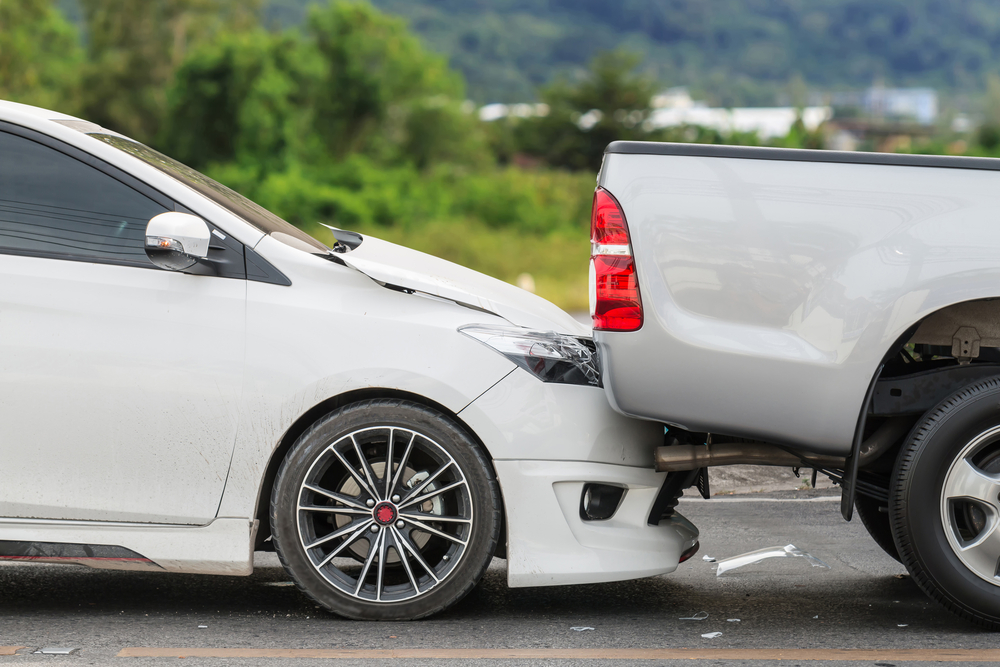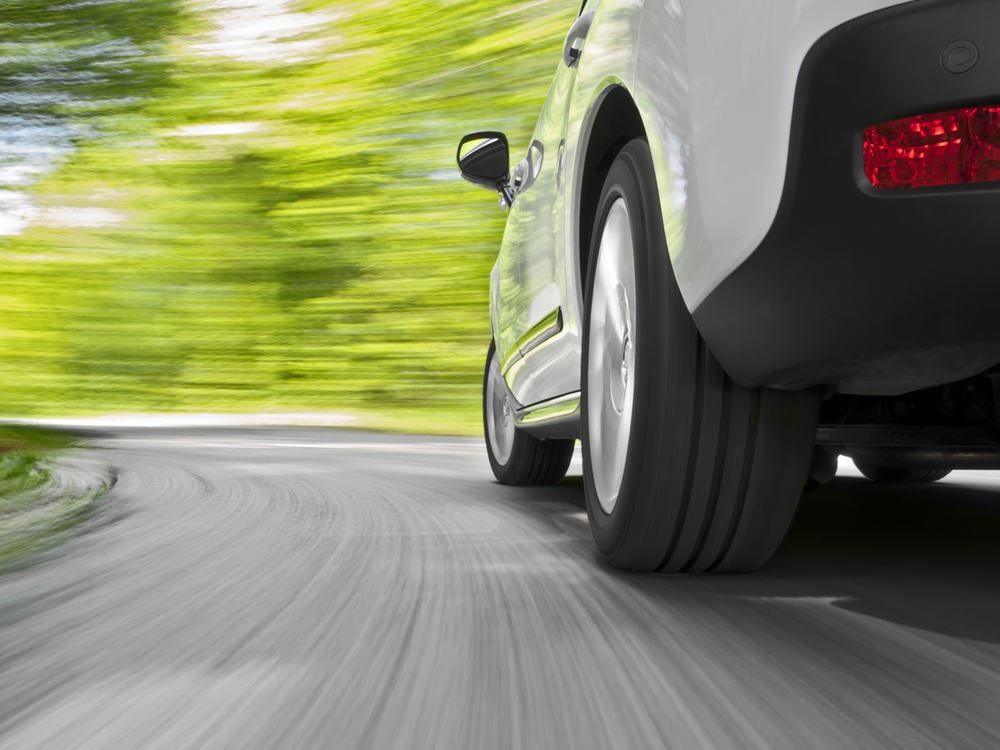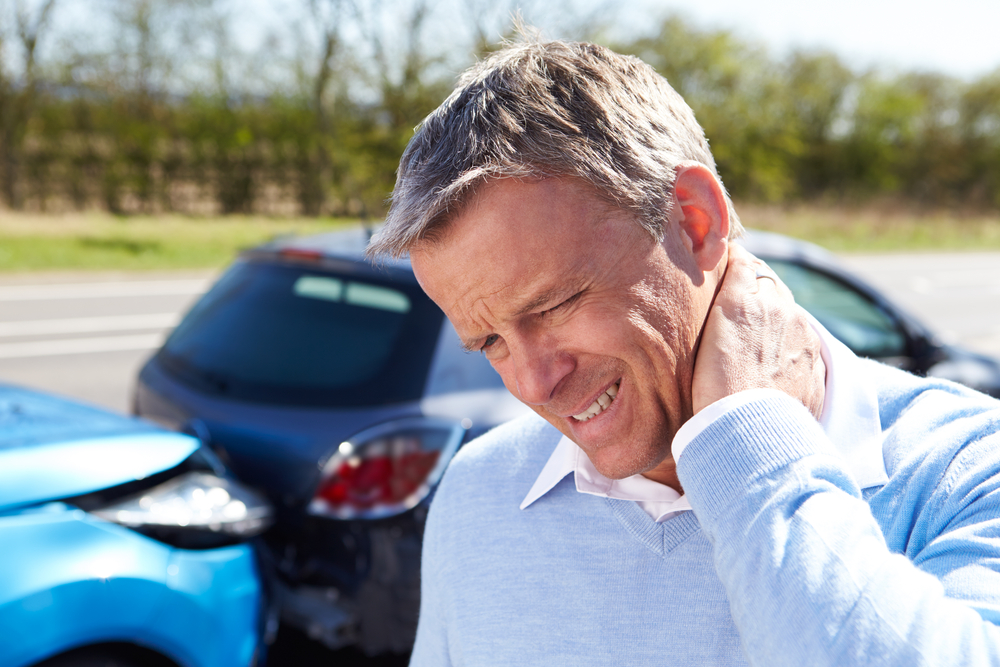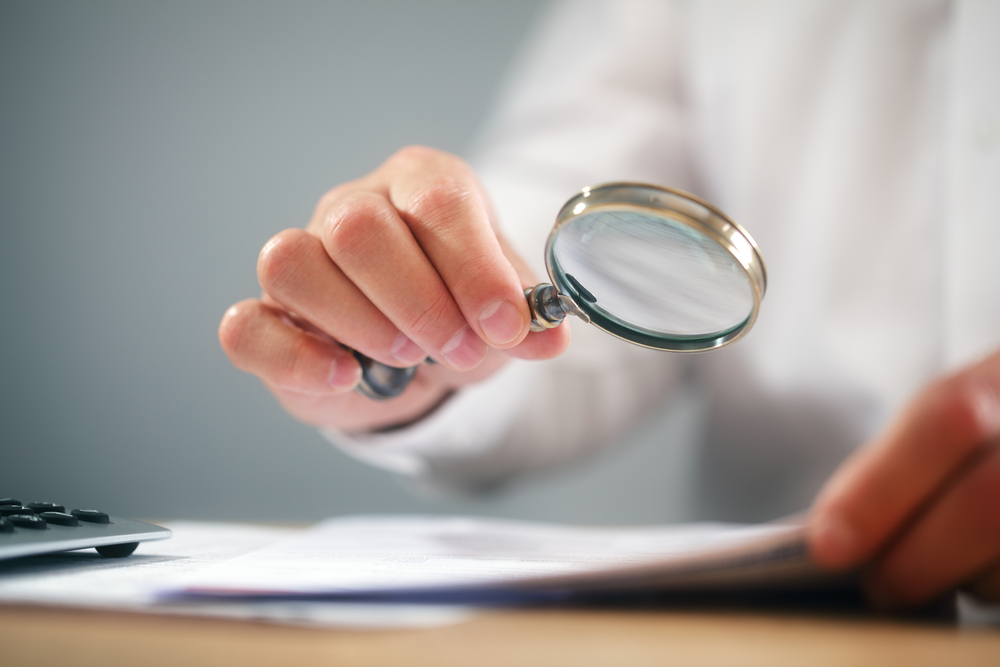
Rear-end collisions are one of the most common types of traffic accidents. Both motorists may suffer injuries when one vehicle strikes another (or a motorcyclist) from behind. However, people typically consider the motorist in the front as the victim, and they may suffer more serious injuries because they do not see the impact coming and cannot brace for impact.
If you or a loved one are the victim of a rear-end accident, you should receive fair compensation for both economic and non-economic damages. Hiring a car accident lawyer in Minnetonka will allow you to prioritize your recovery while they pursue a settlement or jury award.
Why Do Rear-End Collisions Happen?
Rear-end traffic accidents can happen because of:
Tailgating
Motorists often strike other vehicles because they fail to leave enough room between their vehicle and the one in front. This behavior, known as tailgating, often accompanies speeding.
Tailgating results in rear-end accidents because:
- As a general safety rule, motorists should leave several car lengths between their vehicle and the one in front.
- Drivers of larger, heavier vehicles must maintain an even greater distance than most other vehicle drivers.
- When vehicles in front slow down or brake completely, distance is necessary for the trailing motorist to brake and avoid a collision.
Safety-conscious motorists are often surprised by how many other drivers ride the bumper of other vehicles. This highly risky act leaves little room for error and frequently results in rear-end collisions.
Speeding
Those who exceed the speed limit increase the risk of causing a rear-end accident.
Authorities develop speed limits based on the following:

- Road conditions (including the curvature of the road)
- Traffic patterns
- The presence of pedestrians and intersections
- Other factors unique to each road
Because most motorists abide by speed limits, speeders often find themselves in close proximity to other vehicles. When a speeding motorist loses control of their vehicle or another vehicle brakes in front, rear-end collisions occur.
Impaired Driving
Drunk motorists, those impaired by legal or illicit drugs, or those who are tired, or emotionally unstable, pose a heightened risk of causing traffic accidents.
These motorists may cause a rear-end accident because they may:
- Lose their judgment and engage in risky behaviors like speeding and tailgating
- Be visually impaired, which may cause them to strike vehicles in front of them
- Experience delayed reactions
- Lose physical control of their vehicle due to worsened coordination
If an impaired motorist caused your rear-end accident, your lawyer will hold them accountable for your harm.
Dangerous Road Conditions
Driving is chaotic even in tranquil conditions.
When roads are unsafe, then:
- Motorists may brake unnecessarily for perceived hazards
- Motorists may become confused and prone to make irrational decisions
- Defects on the road may cause tire blowouts, vehicle redirection, and other events that lead to collisions
- The overall likelihood of an accident may rise significantly
Depending on the specific hazard that leads to a rear-end accident, a municipality may be liable for the cost of the collision.
Poor Weather Conditions
When motorists fail to respond appropriately to poor weather, rear-end collisions are one of the possible consequences.
When it is raining, snowing, icy, or foggy, motorists should:
- Increase the distance between their vehicle and vehicles in front
- Refrain from accelerating rapidly
- Use headlights as necessary
- Drive more conservatively than usual
Motorists are still responsible for accidents in poor weather conditions, even if they have taken action to prevent the collision.
Vehicle Defects
Vehicle-related defects can contribute to (or directly cause) rear-end collisions.
Vehicle components whose failure may cause a rear-end accident include:
- Brakes
- Tires
- Windshields
- Steering-related components
- Motor-related components
- Starters
- Batteries
If a defect contributed to your accident, your attorney will identify it and sue those responsible for the flawed component.
Each accident has a different story, and your lawyer will gather the details of your rear-end collision. Such fact-gathering is necessary to establish liability and build an effective case.
Who Is Liable for a Rear-End Collision?
The law generally holds a motorist liable when their vehicle strikes the rear of another vehicle. However, your attorney must diagnose the exact cause of your accident to determine liability for your damages.
Your attorney will file an insurance claim against or sue any liable party, which may include:
- A motorist
- A municipality
- A motor vehicle component manufacturer
- An establishment that overserved a drunk driver
- Any other party whose negligence caused your accident
Your attorney will speak with witnesses and professionals to determine who owes you compensation.
Common Injuries from Rear-End Accidents

Rear-end accidents can cause severe injuries, especially when one vehicle strikes another at a high speed. Rear-end accident victims may be especially vulnerable to injury because they don't see the other vehicle coming and, therefore, cannot take measures to avoid or lessen injuries.
Some common injuries that can result from rear-end accidents include:
- Whiplash: Mayo Clinic specifically names rear-end accidents as a cause of whiplash. This neck injury can happen when the accident victim's head whips forward and back rapidly. Symptoms may include neck stiffness, headaches, fatigue, and dizziness.
- Traumatic brain injuries: Rear-end accident victims may suffer a concussion or other traumatic brain injuries that cause long-lasting pain and other symptoms.
- Broken bones: The impact of an auto accident may cause one or more bones to break, resulting in severe pain and other serious symptoms.
- Soft-tissue injuries: Sprains and strains are two types of soft-tissue injuries that can result from rear-end traffic accidents.
- Spinal cord injuries: If you suffer a spinal cord injury during a rear-end accident, you may face a high cost of care. These injuries can be life-altering, as they may affect your range of motion, cause changes in sensation, and interfere with your ability to care for yourself.
Your attorney will rely on medical professionals, doctors, and other qualified professionals to document your injuries and detail their effects on your life.
How Do I Get Money for a Rear-End Accident?
First, understand that you don't have to seek money for your rear-end collision alone. You can allow a rear-end accident attorney to handle your insurance claim or lawsuit.
Your attorney will explain your options for seeking compensation, which will likely include:
- An insurance claim: If you or the person who caused your accident had auto insurance, your attorney may file one or more claims seeking the compensation you deserve.
- A lawsuit: If insurance companies cannot or will not cover the cost of your accident, your attorney may file a lawsuit against those who caused your collision. After evaluating your damages and perhaps seeking compensation through an insurance claim, they may explain that a lawsuit is necessary to pursue the financial recovery you deserve.
Rear-end accident lawyers develop personalized strategies for each client. Once they understand the nature of your damages and the options for seeking compensation, your lawyer will give you a recommendation about how to proceed.
Reasons to Hire a Rear-End Accident Lawyer After Your Accident
Some reasons to consider working with an attorney are:
- Your recovery: Dealing with an insurance claim or lawsuit may compromise recovery. You cannot rest and receive treatment as often as necessary if you are dealing with the demands of your case. You can avoid detrimental health outcomes by hiring an attorney to take your case off your hands.
- Attorneys' resources: Law firms offer an abundance of resources. From professional testimony to reconstructions of your accident, your attorney will utilize all available tools to strengthen your case. Your attorney will factor such resources into their fee structure, so you face no direct cost for them.
- Attorneys' experience: Your rear-end accident lawyer has likely handled many cases like yours. This will prepare your attorney to overcome the obstacles that arise during the claims process or a lawsuit. Experience allows lawyers to complete cases efficiently and calmly, and your attorney will secure your financial recovery as soon as possible.
- Law firms' contingency fees: Rear-end accident lawyers recognize the financial hardship that auto accidents create. Your lawyer won't ask for any upfront fee, and they will only receive compensation if they successfully complete your case.
Your lawyer will deal with insurance companies, protect your rights, and look out for your best interests throughout their time representing you. Prioritize your health while your lawyer does their job.
How Lawyers Use Contingency Fees to Benefit Clients
The contingency fee structure is worth exploring, as it is a critical reason many accident victims can hire attorneys.
When a law firm uses contingency fees, it benefits you as a client because:
- You won't have to pay the law firm any upfront fees or costs.
- The law firm will provide its resources (attorneys, paralegals, and professionals) without charging you directly for these services.
- The law firm must secure a settlement or jury verdict before receiving a fee.
- The fee comes from the financial recovery, not out of your pocket.
Clients should know the exact percentage of the financial recovery they stand to collect. This way, the client can determine how much compensation they will ultimately receive after the law firm collects its fee.
Your Attorney Will Take Your Entire Case Off Your Hands
Your law firm will handle every detail of your case. Because of the services provided by your lawyer and their paralegals, you won't have to worry about:
Dealing with the Insurance Companies
Insurance companies can be a headache.
While these companies may ultimately pay for the cost of your rear-end accident, they may also:
- Deny your claim
- Blame you for causing the collision
- Tender lowball settlement offers
- Deceive you about the details of insurance policies
- Make it difficult for you to obtain the compensation you deserve
Insurance companies can also use your words and actions against you. This is a key reason your lawyer will deal with insurers for you.
Keeping Track of Your Damages
Your lawyer and their team will monitor your damages and secure all available documentation of those damages, including:
- X-rays, CT scans, and any other direct evidence of your injuries
- Bills for accident-related medical care
- Invoices for repairing or replacing your vehicle
- Invoices for replacing other damaged property
- Professional testimony about your pain and suffering
Every damage leaves a paper trail, and your lawyer will ensure the documentation is as detailed as possible.
Securing Accident-Related Evidence
Attorneys must prove the liable parties' negligence. In your case, this will mean detailing the reason why another vehicle hit yours from behind.
Useful evidence may include:

- Video footage of the collision
- Cellular records show that a motorist was using their phone at the time of the collision
- Eyewitness accounts
- Professional testimony explaining who is responsible for the accident
Lawyers and their investigators gather evidence as quickly as possible. They may even need to file a legal motion to secure evidence from liable parties.
Calculating a Precise Settlement Value
Your attorney will calculate the compensation you deserve for your accident-related damages. Ideally, this figure will help you avoid having to pay out of pocket for current or future damages, such as medical care, mental health treatment, and vehicle repairs.
Negotiating a Settlement
Once they know how much money you deserve, your lawyer will engage in settlement talks with liable parties. Your attorney may receive resistance from liable parties. Your legal team will provide all available evidence and documentation and insist that liable parties pay the amount you are entitled to.
Going to Trial
If your case requires a trial, your lawyer will represent you in the courtroom. They will present a detailed, comprehensive case, skillfully presenting evidence, cross-examining witnesses, and advocating on your behalf. Ultimately, they will ask a jury to carefully consider the facts and award you a fair and just sum for the damages you have suffered.
Hire Your Car Accident Attorney as Soon as Possible
The motorist who rear-ended you (or any other liable party) is responsible for covering medical costs, pain and suffering, lost income, vehicle repairs, and any other damages resulting from the collision.
A car accident attorney will work diligently to hold these liable parties accountable, so don't hesitate to hire your lawyer and pursue the compensation you deserve.

